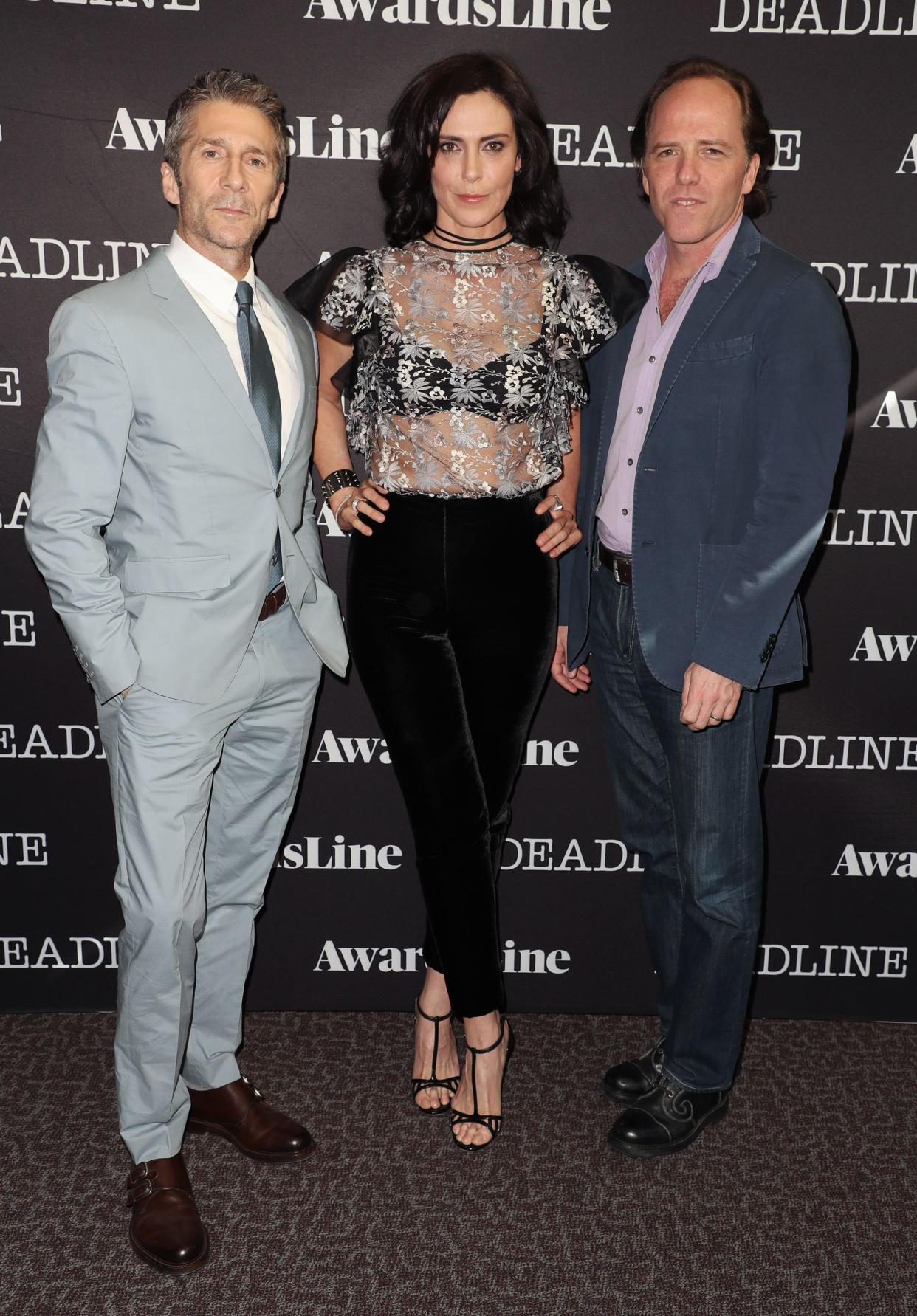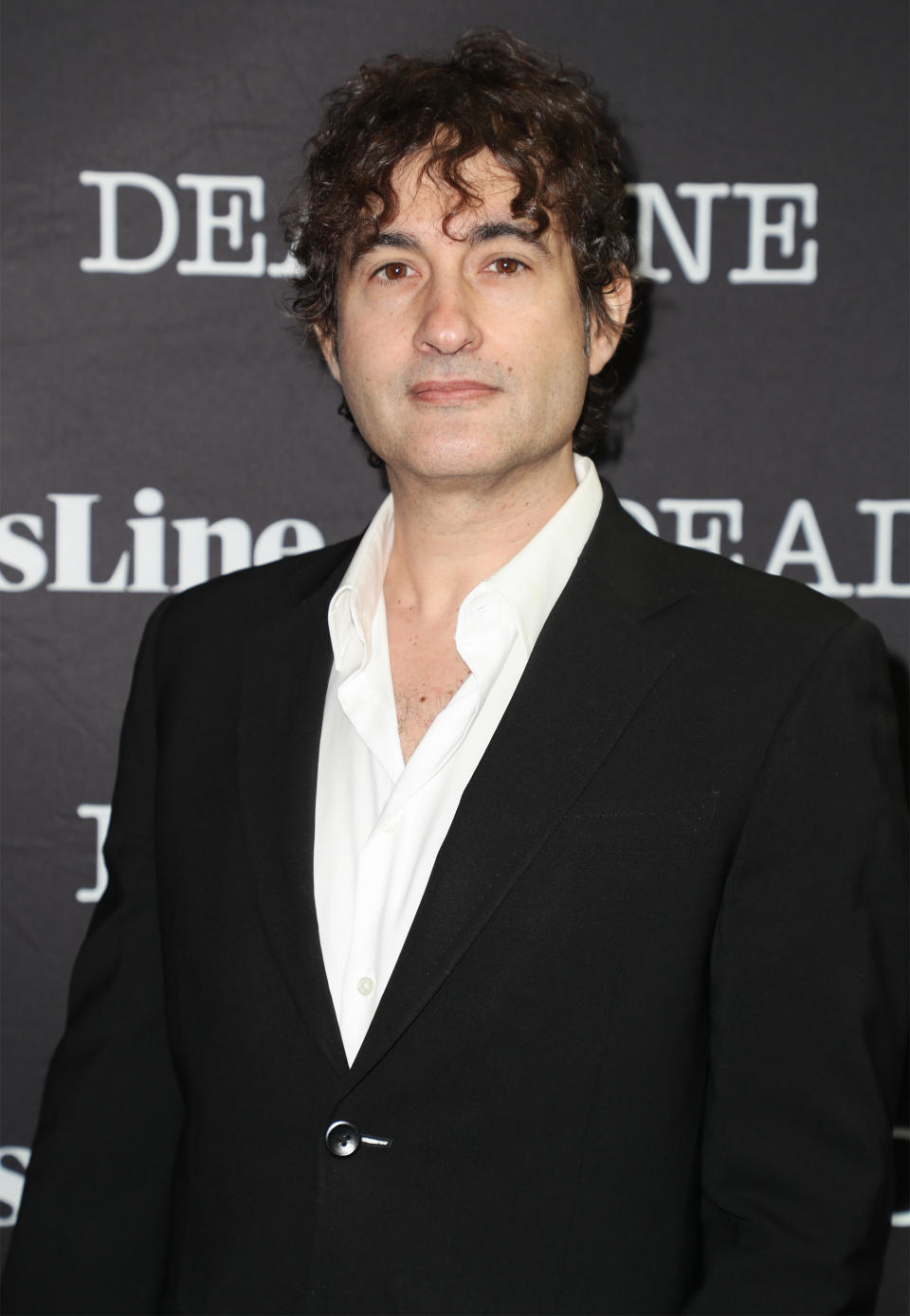Epix’s ‘Berlin Station’ & ‘Graves’ And America’s ‘Identity Crisis’ – Contenders Emmys

Created by Olen Steinhauer, Epix’s Berlin Station is a show that literally could be torn from today’s headlines, an hourlong contemporary spy drama that explores the activity of a CIA office on a global stage in the midst of an investigation into a now-famous whistleblower. The show was part of Epix’s panel Sunday at Deadline’s The Contenders Emmys event.
The series follows Daniel Miller (Richard Armitage), a new arrival at the CIA’s Berlin station who is on a clandestine mission to uncover the source of a series of leaks.
Showrunner Bradford Winters acknowledged that the show was modeled on recent events, notably NSA informant Edward Snowden and controversial WikiLeaks founder Julian Assange. “Obviously it was created and developed in the wake of Snowden and Assange,” Winters said onstage at the DGA Theater, “but where the show aspires to really make its mark is in the theme of human intelligence. This is not a spy show that relies too heavily on technology but on the old-fashioned ways of human intelligence. So while the leaks were our way in to the thematic concerns of the first season, the deeper motivation was for them to provide a way into the characters, because we really consider it a character-driven show.”
For Leland Orser, who plays Deputy Chief Richard Kirsch, the show deals with many issues facing not only America but every country in the world. “It’s [about] intelligence, it’s [about] privacy, it’s [about] transparency,” he said. “What do those things mean to you as an individual, as an American citizen, as a member of the global community? And as an operative, an employee of the CIA, it’s about a moral compass. … Intelligence — what is it and what are you willing to do to get? And how are you going to bend that moral compass when you need to?”
He continued: “These guys are not superheroes. They’re not James or Jane Bond. They’re broken, damaged people whose personal lives are a shambles. The CIA exacts an enormous toll on the people that work for it. It’s the truth. Can you tell the truth to the people closest to you? And oftentimes in the world of the CIA, the people closest to you are best and safest far away from you.”
Michelle Forbes, who plays the no-nonsense operative Valerie Edwards, found research frustrating but not impossible. “I did a lot of reading on the subject,” she said, “and also I’m very involved in the animal activist world, so I know a lot of undercover people. I went to a lot of my friends in that world to see what it really feels like to lead these double lives and how much you really sacrifice.”
The breakthrough came, however, when she spoke to former CIA agent Valerie Plame, whose cover was blown in 2003. Said Forbes, “I resisted going to Valerie Plame for a long, long time, but then when I did was glad I did, because it really helped me to understand what it’s like for a woman to be undercover and to sacrifice so much of your private life in order to be able to do your job.”
In terms of the bigger picture, Winters believes the show has a lot to say about current events. “I think it’s a show that really wants to explore America’s role in relation to the larger world and the post-9/11 landscape,” he said. “I think of the first season as America having a conversation with itself, in this larger global canvas, which we carry into the second season in a totally different thematic area. It’s sort of stating the obvious to say that America is having kind of an identity crisis at the moment, but it certainly hasn’t been just recently — this is something that has been fraught and quite acute since the start of the millennium. That’s almost subconsciously how we treat the show creatively when we go into our storylines and our characters: What is our role? What were we here to do? What are the lines between right and wrong? And who are we to be the arbiters of these questions?”
Inevitably, the shadow of Donald Trump loomed large over the panel, but not quite as strongly as it did over Epix show Graves. Created by Joshua Michael Stern, who also serves as showrunner, the show is a half-hour political satire that follows former two-term Republican President Richard Graves (Nick Nolte) as he embarks on a Don Quixote-like quest to right the wrongs of his administration and reclaim his legacy 25 years after leaving the White House.
Although the premise seems irresistible, Stern revealed that the project was by no means a done deal. “This is a case where the actor completely dictated the part,” he recalled. “Greg Shapiro, the producer, produced my first film, Neverwas [2005]. He came to me and said, ‘There’s this idea about a retired president living out in the desert,’ and for a couple of years I just couldn’t see it. Because, inherently, ex-presidents are not very interesting. They sort of fade away and they’re a bit … dull after their presidency. But he kept needling me, and I thought, What about Nolte? He’s this guy with a whisky-soaked voiced, kind of a trainwreck,” he said with a laugh. “Now that’s an ex-president that I might want to see!”
Related stories
'Drunk History': How Lin-Manuel Miranda Got Hammered In The Name Of Culture - Contenders Emmys
Hulu's 'Casual': Comedy In Unhappiness - Contenders Emmys
'Shots Fired' Creators On Sensitive Subject Matter & A Potential Season 2 - Contenders Emmys
Get more from Deadline.com: Follow us on Twitter, Facebook, Newsletter


